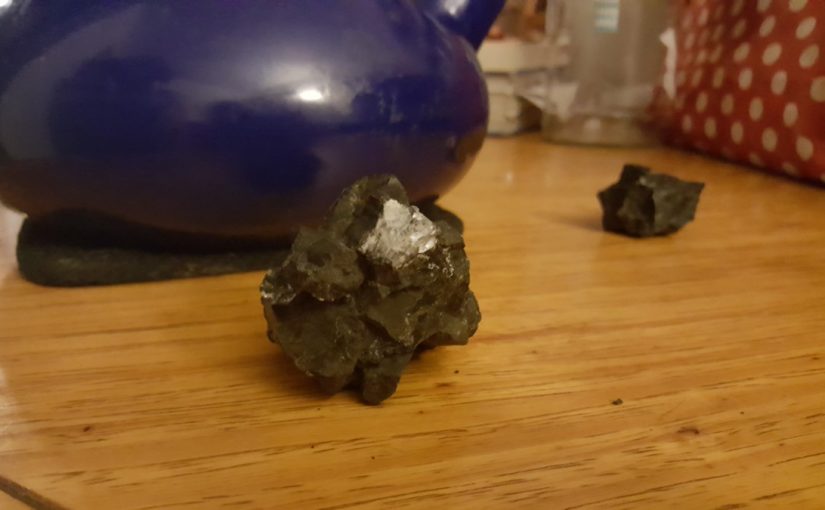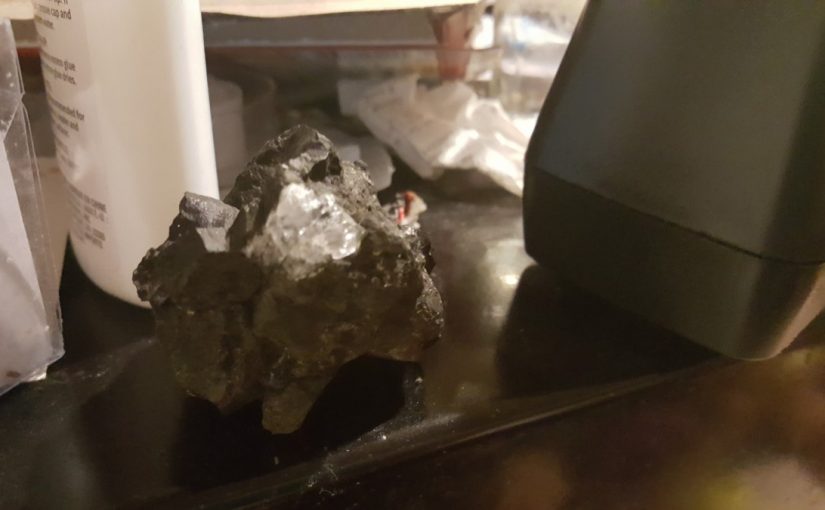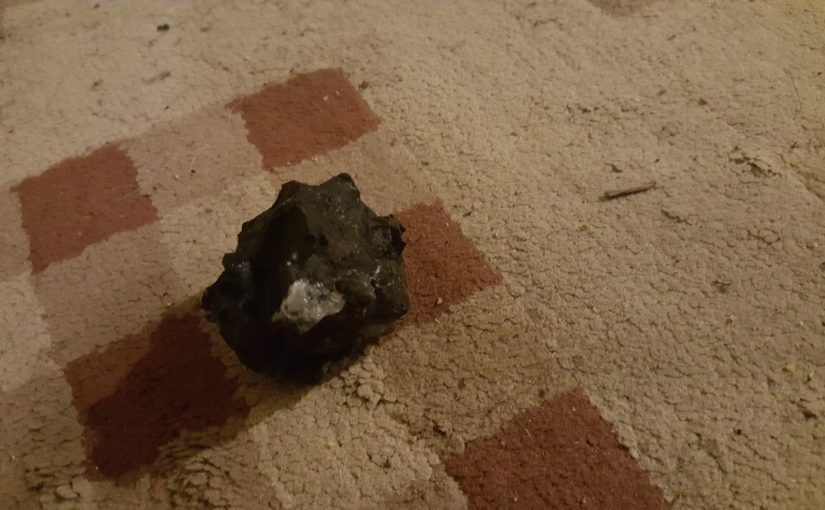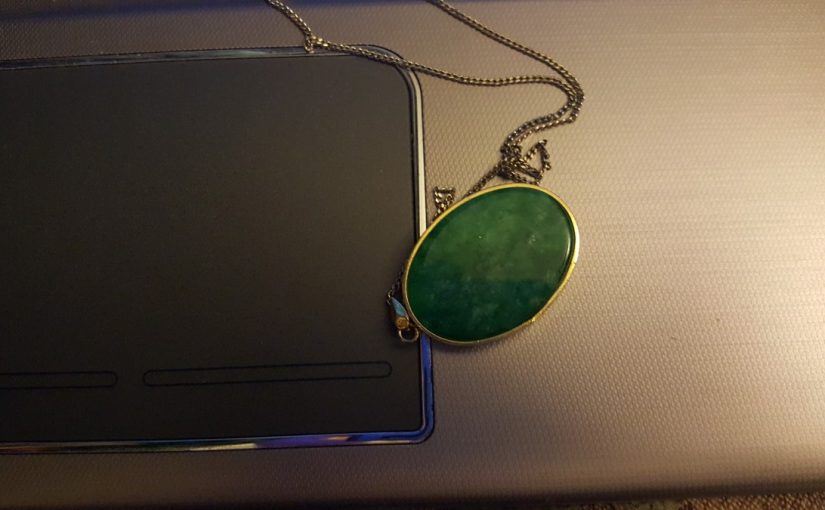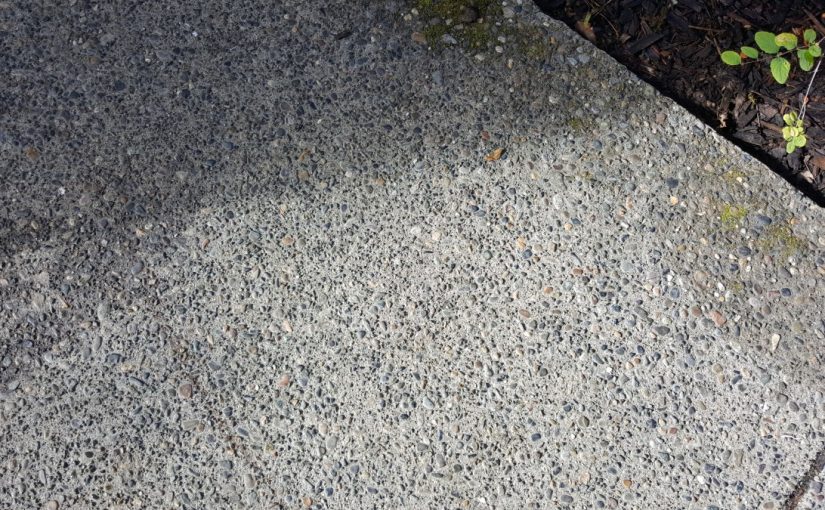Progress on my final paper has been ongoing. A lot of typing, editing, and refining has happened this week. Things are going well so far and what I’m writing is making sense to me. While I don’t know yet if this makes sense to anyone else, I am optimistic that it’s at least something that others are able to relate to. The new format of writing for this paper has come surprisingly easy to me. I think honestly this is much closer to my natural style of writing. Many academic papers are a challenge for me in part because of the formatting. This format really has simplified the process a lot and I wish I could use it in more of my classes. While admittedly I know there are valid reasons why I can’t it still nonetheless nice to be able to just come out and say “I think this” and or “this is how I understand things”. The ability to utilize such personal connections has really enhanced this paper. For one thing it would be really awkward if I was writing a paper involving personal connections but could not use the word “I” at all.
Category: Rock
A research log for a major writing assignment — posts in this category will trace the evolving relationship between your “home” and Asian American/Pacific Islander American popular culture.
A Place With Good Food and Music!
Progress in my final project has once again transitions to an intellectual phase. Piecing together the different pieces of information in my mind is taken up a lot of my thoughts in the last few days. My original concept for the project is not much so much changed as more of the evolved. I’m still keeping the same ideas, but I have gained some new insights and understanding how these things fit together to make up significant components of my life. When initially I thought of combining the ideas of jazz and food I thought I might be a little crazy. While on personal level this combination made perfect sense, on the academic level this seemed like walking into a giant minefield of abstract ideas. One of the key ideas that really has brought things together in my mind for me, is the revelation that if nothing else, photo and music go together in Western culture. This seems like an obvious revelation to many, but because of my life experiences, this was a massive brain way for me, and is going to be very relevant in my execution of my final paper.
An Old Friend From Day’s Past
Ward, Geoffery and Burns, Ken. Jazz : A History of America’s Music. Knopf, 2000.
In this book, Ward and Burns work Jazz, is an effort at documenting the origins of the uniquely American music of the same name. The work covers the era know as the jazz erra, and stretches from 1900 to the late 1970’s. The work contains a significant collection of historical images of the era in addition to the stories of the people who Ward and Burns credit with making the music what it is.
This book is going to be very reverent to my paper, less because of what is in it specifically, but more because of what it has been in my life. I got this book when it first came out, as a kid. I would sit and read it in the quite of my room for hours on end, soaking up the images and stories of what jazz is. Or so I thought. I also watched the series that this book goes with in school as a part of my music education. I thought I knew about what jazz was. It has only been in retrospect, that I realized there is a lot missing form this story, and it is written form a very biased perspective. There is a whole bunch of stuff that is not even mentioned in this book, including a lot of things directly relating to AAPIA people’s involvement in jazz. More then anything else, this book is the reference point at which I stated this class at. This is the history I learned, and it is incomplete.
A Haunting Personal Connection
So at this point I believe, I have acquired all of the research that I need for my final paper. I have well over seven sources, and at this point more than anything I think I may have to many sources, I tends to overwrite papers. I’m not sure exactly where to go from here. But I know one thing I can do is create annotated bibliographies of my sources that I have currently. If nothing else, it might help me sort out what I do and don’t not want to use.
Cho, Grace M. “Eating Military Base Stew.” Contexts, vol. 13, no. 3, Summer, 2014, pp. 38-43, Ethnic NewsWatch, https://evergreen.idm.oclc.org/login?url=https://search-proquest- com.evergreen.idm.oclc.org/docview/1555639492?accountid=11199, doi:http://dx.doi.org.evergreen.idm.oclc.org/10.1177/1536504214545759.
In this article Grace Cho utilizes her personal ambiguous feelings about a “traditional” Korean meal to inform the reader both about the meal itself, as well as the awkward history around it. Cho explains the way in which Koreans were forced to first began making this meal and why it continues to persist as component of Korean food culture as well as Korean-American food culture. Additionally, the pieces and exploration of how her own family and life is a reflection of the story of this dish. An additional point of note about this piece is that it is written from the first-person perspective and stylistically is much like the example essays given for our final project.
I’m not really sure if this piece is going to have a place in my final paper. It has however been very significant to me because it has shed light on the culture that my father was a part of during his deployments to Korea. While I can think of some ways to integrate the ideas of this article into my final paper I think more than anything it is likely going to be utilized as an example of how to write in the style. I am going to have to spend some quality time trying to figure out where this piece fits in.
A New Source!
Here is the annotated version of the bibliography entry for this new article I utilized in my rough draft. I think this work is going to be really relevant to my final draft of my final paper. While my progress this week has been quite pathetic in many ways, the fact that I found this article is really made up for it. This article likely going to make my paper work.
Katz, Elihu. “Evaluating Culture: World Music And Fusion Food.” International Journal Of Cultural Sciences, vol. 18, issue 2, pp. 155-165, Oct. 2014. Evergreen State College ILLiad, https://clio.evergreen.edu/illiad/EVER/illiad.dllAction=10&Form=75&Value
=411399.
In this article, Katz explores the challenge faced by music and food critics in attempting to reconcile globalism and ethnic origins of dishes/music forms. Katz points out that for food/music critics, multiculturalism has created a unique situation when it comes to determining evaluation criteria as it’s not clear by what standards each creation should be judged by. Katz utilizes the examples of fusion food and the so-called world music genre as examples of the confusion that has been introduced into evaluation efforts.
I am likely going to rely heavily on this article because it directly addresses both issues of Asian pop culture that I am wanting to discuss (food and music). Katz’s article is a next level explanation of one of the points I am trying to make in my own paper. I am interested in looking at the interaction between multiculturalism/globalism and attempting to define what is and is not a part of any single ethnic group’s pop-culture. That is exactly what this article is doing as well.
The beginnings of a draft?
Fusion food is something that I have found is just the food that I cook and eat. I do not think of it necessarily as being a mix of different peoples ideas of what is good I just think of it as different ways to make what I am making more yummy. I can’t stand boring food. I hate the idea of falling into a routine of always having the same thing every day for food, and even when it comes to the dishes I cook, I almost never cook the same thing twice. The idea that food is some how a result of one specific ethnic group is an idea that I some how missed or forgot at some point. Even when I cook things that are traditional dishes from one place or another, I can’t just keep with the ingredients from there, I add in things form all over the place. Take my spaghetti for instance. It was always a very non traditional spaghetti, I like to add things like Tarragon, and Thyme and Sage along with the more traditional spices of oregano and Basel. Then I favor malt vinegar over balsamic vinegar, I add Worcester sauce. And its not complete with out soy sauce and/or teriyaki sauce. It just does not taste right with out it. I also usually add some other exotic (to Italy) spices. Nothing is pure Italian about my Italian cooking.
But my “Asian” food is no better. I add oregano to my teriyaki sauce, and red wine to make a vegetable dish with Italian noodles instead of rice. I add Mexican spices like cilantro and chilies (chipotle or Jalapenos) to it too. This is not pure Asian food any more then the Italian food is pure Italian.
Jazz is the same way. There is the beet, which can come from African music, or from Latin music and then melody that uses the pentatonic scale, which is what a significant portion of Asian music is based off of. The melodic sounds that we associate with Asian music forms are from the pentatonic scale, which is also the basis of blues and jazz. While there are other people who use these scales in the world (lots of them) it is interesting to note how this connection is always left out of the conventional history’s of jazz. The art for its self is so broad that it seams crazy to do so. And yet it is.
In one of the sources that I have for this topic there is a discussion of how labeling things as jazz is a means of labeling it as undesirable. As some how being not a part of main stream American music. (Lee 71-72) I have to admit, I could see how this is a viable idea. Jazz as a genre is so broad that I have often wondered why it is all considered related. Sometimes there are stylistic relations, and it is clear why a piece has been grouped as jazz, and other times its not really clear why this is jazz and not something else. The accusation is that this label is used as a means of racial segregation. (Lee 71-72) And I could see it. The thing is that historically Jazz has been labeled as a music of rebellion, a music of America, a music of mixed heritage and origins. It is inherently minority, even when it is representative of the majority. The idea being that it is some how tainted by its mixed origins, and thus is the landing place for artists who don’t fit the mold-aka are not white but are writing music that is associated with whiteness.
The question becomes, why this acceptance of a mixing of origins in food as a positive attribute but in music as some how negative or not worth appreciating? Why is the acknowledgment of the mixing a thing in food? Why are the AAPIA origins/contributions not appreciated in Jazz? The history is there, Jazz shows the influences, and there are even artists who have been doing “jazz” that fuzzes the sounds of Asian music with the sounds of jazz. And yet, it is not a part of the history and stories that I learned. I did not learn about this part of jazz in school. I learned that it was a black and white fusion. There was no brown or red contributions to the roots. Which in retrospect is absurd.
Lee, Daniel Y. “Don’t Call It Jazz: An Interview With Vijay Lyer.” Asian American Policy Review, vol. 26, 2016, pp. 70-75, Ethnic NewsWatch, https://evergreen.idm.oclc.org /loginurl=https://searchproquestcom.evergreen.idm.oclc.org/docview/1898059508?accountid=11199.
A Moment of Introspection
The idea of code switching, came up in class today, in our discussions of Donald Duk by Frank Chin. This topic is not something I have talked about in length in class before but I have herd it used elsewhere. I thought I knew what it meant before class, but I think I have been working with an incomplete definition. In the past this term had been used to describe how people would change their language use and behaviors on behalf of the comfort of others and this term had always been used with a negative connotation towards the person who was doing the switching as some how seeing the people they were switching for as being lesser persons. So admittedly this is not a good definition, or understanding that I have been working with because it did not account for the comfort and efforts to be included by the person doing the switching. That was always left out in the past.
Additionally, up until it was mentioned in class, I did not realize that code switching included accents. This caused me to really stop and do a double take in class, as I realized I finally have a name for what I do with accents. So I have what my mom always called a military accent; I adapt my accent to which ever one is around me. I once was in a room with ten different people from ten different regions of the US and we noticed that my speech had become very weird as I was attempting to replicate both the language use patterns and the accents of everyone in the room at once. This did not work at all, and I could not speak coherently to anyone for a while. Admittedly, I was also on pain medication at then time, so my mental capacities were not the greatest, but the reality remains that I have since done the same thing while sober; just with fewer accents at once. I have always felt ambivalent about the way I do this, and in someways it has been handy, but in others, I feel like a freak.
In doing a little research about this topic, I ran into an article by Matt Thompson titled “Five Reasons People Code-Switch” that was published by NPR on their blog about ethnicity and race. Both in reading the article, and in thinking about the discussions in class today my own habits come to mind, and I have to ask my self- why do I do that? I can’t help it, it is so hard for me to maintain my own accent, if another is presented that I even pick up accents from things I read that are written in such a way as to convey accent. I have to admit that I have worried about being seen as some how disrespecting others around me, or mocking them when I do this, but like I said I have little control over it, and I sometimes do not even know that it will happen. I do usual (these days) at least realize when I am doing it. When I was younger I did not. I do not intend it as an insult, and I do not think I do it to be demeaning to others. This is something that I think I will have to spend a lot more time thinking about.
Thompson, Matt. “Five Reasons People Code-Switch.” Code-Switch, NPR, http://www.npr.org/sections/codeswitch/2013/04/13/177126294/five-reasons-why-people-code-switch. 10/13/2017.
Rocky Progress
My work this week on my creative project has not gone as far as I have wanted it to, in part because I have been sick, but also because I have been focused on my thoughts from the field trip. However, I have to admit that I have had some related thoughts between the topics. The art of Takuichi Fujii and Zhi Lin both created some strong statements about baring witness to different equally horrid events of American history. Both artists worked with some very powerful topics, that resulted in very powerful art. I also know that such events in other communities have lead to some amazing musical typed art. I want to know if the AAPIA communities have created music out of such experiences and if so, what does it sound like? Is it jazz, or blues or another form of music associated as being uniquely American? Or is it something else.
What is home anyway?
A key component of the final paper for this class is going to be a working definition of the idea of home. What aspect of home am I going to use in this paper? My physical home currently, is a overcrowded two-bedroom apartment in north Centralia. It is in good repair, but attempting to fit my family into it has taken its toll. The building itself is nothing to write home about and is reminiscent of a set of barracks buildings from the outside. Inside it is much nicer, and has a relatively decent floor plan, and is equipped with good facilities for the price range it is in.
The home in the metaphorical sense for my family that I have created inside of this building is complicated. My husband and I live here with two children currently, but the third visits when she can. The children while not mine by blood, are part of my family. My parents, no longer form a cohesive family like they did when I was a child and I have three of them now. All three of them do not live in this state for now. My husband’s extended family all live here and it has been an adjustment for me to have people so close to us still be so far away. The children also have another side to their family that I am not sure how to address, that creates the “it’s complicated”part of my family. A big part of why this is so awkward, is the fact that we all live in the same state now, with in 100 miles of each other, all of which is a very new thing.
Then there’s where I grew up, and the place that I call home. My home is simply a memory of time and place and things were different than they are now. The physical house I grew up in is now only a memory. The family I grew up in is a memory. And sadly, the place for that house was is also a memory. This is not the state that is my home, it’s just where I am. As nice as Washington is it’s not Alaska. I want my fish back, and the trails made of dirt, and the mountains, and the snow, and the plants and trees I knew, and the moose. But for now, Washington will have to do.
I’m not yet sure which of these ideas I will use my paper, perhaps I will use a combination of these places and ideas. After all there is no right answer, and all of these things are my home. This will be something I’m going to have to think about for much longer.
Example Rock Post
A research log for a major writing assignment — posts in this category will trace the evolving relationship between your “home” and Asian American/Pacific Islander American popular culture.
